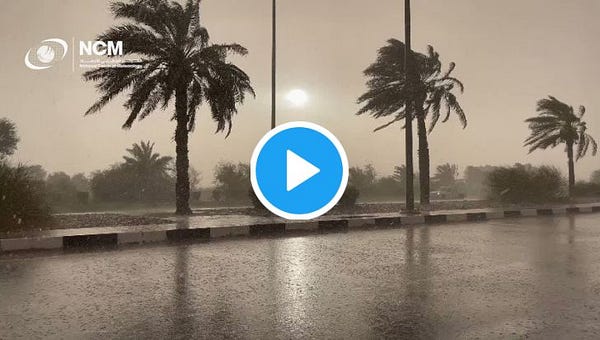Welcome to New World Same Humans, a weekly newsletter on trends, technology, and society by David Mattin.
If you’re reading this and you haven’t yet subscribed, join 17,000+ curious souls on a mission to build a better shared future 🚀🔮
I’m back from a week beside the sea!
There’s nothing like a few days away from the desk to prompt new thinking. As you’d expect, I took the chance to ponder the future of our community. It’s about time I wrote an update on the state of the NWSH union, including the new projects I’m planning. Expect that instalment soon.
In the meantime I’m picking up where I left off, with the greatest shared challenge we face: global heating. You can think of this instalment as something of a companion to the last Sunday note, Is This the Climate Turning Point?
Three climate stories caught my eye this week.
Each is a telling glimpse of the crisis as it is manifesting in 2021. And each points towards a broader set of issues that we must confront if we’re to address a heated world in the 21st-century.
Hit play!
If you’d prefer to read this week’s instalment go here for the text version of Three Climate Stories.
Links and Images in this week’s instalment
🗺️ Mapping climate justice
1. New research by the Monterey Bay Aquarium in California allows us to visualise the global injustice baked into climate change.
2.
3. Back in NWSH #36 I wrote on how the Global North was built on carbon, and the Global South is set to pay the price.
🌳 Rainforest reward scheme
1. Gabon has become the first country to be paid for taking action to slow deforestation. The payments came via the Central African Forest Initiative (CAFI).
2. Because rainforests absorb and store carbon, halting tropical deforestation and allowing regrowth could mitigate up to 50% of net global emissions to 2050 according to the Rainforest Trust.
🌧️ Make it rain
1.


2. Back in NWSH #60 I wrote about the search for tech-fuelled solutions to climate change, including a Bill Gates-sponsored experiment in spreading chalk dust across the sky to reflect sunlight.
Calling planet Earth
Thanks for listening this week.
Climate change is an empirically observable reality. We even understand the fundamental mechanisms driving it.
It’s when that reality – when the truth of what we’ve done – collides with human nature that the picture becomes complex. We know systemic change is necessary. But how do we effect it? Who pays the price? Who wins, and who loses?
This kind of collisions – between a changing world and age-old human nature – are exactly the stories New World Same Humans was set up to track.
And there’s one thing you can do to help with that mission: share!
If this week’s instalment resonated, why not take a second to forward this email to one person – a friend, family member or colleague – who’d also find it valuable? Or share New World Same Humans across one of your social networks, and let people know why it’s worth their time. Just hit the share button!
Your membership of our community is valued. I’ll be back on Wednesday; until then, be well.
David.
















Share this post